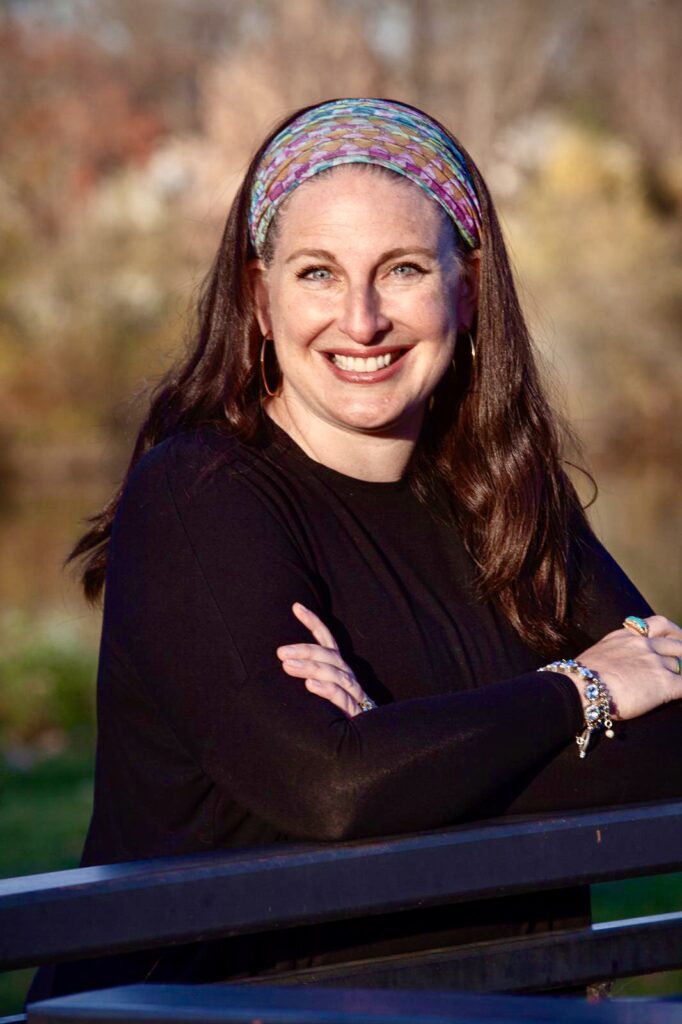
A few weeks ago, I posted an Instagram story all about prayer. I asked if anyone else had trouble connecting to Hashem through this vehicle and so many said yes. Unfortunately, sometimes prayer can feel like an obligation we just have to check off our to-do lists versus a dedicated time to develop a relationship with G-d. I was determined to change that for myself and hopefully find someone who could inspire others in the process.
When thinking of who to speak with about this, Ruchi Koval shot to the top of my mind. She’s a speaker, teacher and co-founder of the Jewish Family Experience (JFX), a congregation in Cleveland, Ohio. She wrote a book called, “Conversations with G-d,” where she breaks down different formal prayers that we say so as to make them more meaningful to the reader. She talks about them in layman’s terms, in a way we can make them relevant to our lives today.
Here, Ruchi talks about her own prayer journey — how it’s gone through its own ups and downs — and shares brilliant advice on how you can connect more deeply to tefilah (prayer) just in time for the High Holidays.
Let’s start off with your own journey. Were you brought up observant? How did you get to where you are today?
Yes, I was raised Orthodox my whole life. I’m originally from Queens, New York but moved to Cleveland when I was in second grade. I went to day school through twelfth grade, seminary in Israel for a year, and then got married to a neighbor of mine from Cleveland shortly thereafter. We lived in Israel for five years when my husband decided to become a rabbi. We started out in Buffalo Grove, IL for two years for his first position, and then came back to Cleveland where we started our own congregation, Jewish Family Experience, in 2005.
Growing up, I never thought I would be a teacher. Looking back though, it does make sense. I was a pretty academic kid and loved school. Everyone was always telling me I should be a teacher but I thought it was stereotypical for an Orthodox Jewish girl. I wanted to work in publishing or something a bit different. I actually was planning on starting a parenting magazine with a friend. But then my husband and I went to an Association of Jewish Outreach Professionals (AJOP) conference and I was so inspired. The whole weekend was spent talking about serving the Jewish people and how we can make a difference. So when we got back, I asked my husband to hire me. I wanted to be an equal partner in this organization with him. That’s where we are today.
How has your relationship with Judaism and Hashem evolved? Has it always been constant?
I would say I went through four distinct stages. The first was a relationship out of habit. Because I grew up keeping kosher, I kept kosher. I grew up knowing I was going to cover my hair. It’s just what I did so I didn’t think very hard about it. But when my husband and I went to Buffalo Grove, people started asking me why I do all these things and it was actually a little embarrassing because I didn’t know. I went through 12 years of day school and a whole year of seminary and I still didn’t know why I cover my hair. It was inexcusable. So stage two involved more in-depth learning. I learned about the things I was already doing to give them more meaning and understanding. Some of the answers were satisfying to me, but some weren’t. It was a journey of becoming more humble. I learned I don’t have to understand everything — I won’t be able to and it’s actually somewhat of an immature view to expect to.
Stage three actually involved a lot more spiritual distance. It started in around 2014 when I had some real parenting challenges and went through a bit of a crisis with my emunah (faith). I felt that my husband and I were dedicating our lives to teaching Torah and inspiring people and it felt like we were being punished despite our hard work. I had a hard time davening during that stage, and even though I was still teaching, I felt uncomfortable being in this position where I was supposed to educate others when I needed so much support myself.
That lasted about two years and then, stage four came, which is where I’m at right now. It really is a reclamation of my emunah. It feels like a much more mature version of stage two. The questions aren’t academic necessarily — they’re very real and practical. They’re on the ground. I’m learning about emunah in a much more visceral way as opposed to the academic way it was before. I’ve really had to fight for my emunah and my connection with Hashem. That all being said, I still go back and forth through the stages at various points, but overall, my connection has matured. I actually wrote my book starting in stage two, spanning stage three. It was really difficult but I’m so grateful I plowed through.
“I’ve really had to fight for my emunah and connection with Hashem.”
What helped you get out of stage three and move into stage four?
A really important first step was just admitting that I was in it. I think there’s a lot of shame around that, especially when you’re in a position of leadership. You feel like you’re not allowed to be a leader and struggle. There’s denial, covering up and shame — but you can’t heal what you don’t feel. Throughout this time, I still went through the motions. I would continue to daven even though I wasn’t feeling any connection with it. I would stand up and say, “Hashem, I don’t know if you’re listening to this but I’m just going to say the right words because that’s what I know I should do and I hope my connection will come back one day.”
I would learn about emunah whether through shiurim (Torah classes) or reading things as much as I could — whatever I could do to re-inspire myself. It’s like when you don’t feel well and have an infection and start taking antibiotics — you might not feel better right away but you can’t stop taking your medicine. You have to finish the treatment and eventually, you’ll feel better. I’m not going to promise that everybody is going to feel better if they work on their emunah because it’s really complicated and everyone is so different, but for me, going through the motions of learning and prayer even when I didn’t feel like it was helpful in the end.
Eventually, it did come back. I think it’s because it was there all along even though it had been in a more childish way. It used to be based on things going well for me — they always had. I got into the seminary I wanted, married the guy I wanted to and had adorable, healthy kids right away, so I didn’t have to fight for things in my life. I wasn’t used to fighting for my emunah.
That’s such an important way to look at it. It’s not always a give and take. That being said, so many people may feel guilty not davening or worried that if they don’t do something Hashem will “punish” them. How should one deal with that and alter that way of thinking?
It’s important to talk about because I do think sometimes the messages we hear about emunah do it a disservice. There are books or stories that say, “Well, this guy had a lot of emunah and everything worked out for him in the end.” I personally don’t relate to those messages because I have seen too many times in my life when I had prayed and believed in Hashem and didn’t get the desired results.
The truth is, if you look at the Torah, the same thing is true. Who could have davened more beautifully for Sodom not to be destroyed than Avraham? It just wasn’t meant to be. Who could have davened more beautifully than Moshe to go into the land of Israel? It wasn’t meant to be.
The bottom line is — and it’s a hard and painful truth — we just don’t know why Hashem does the things He does. It’s not a vending machine where you can swipe your credit card and get a can of Coke. That’s not how real life works 99.9% of the time. These messages minimize and de-legitimize the struggle. It makes people who have a struggle feel like they’re doing it wrong when they’re really not. Again, all you have to do is look at the Torah. All of our leaders had challenges, so where did we get this idea that if you do everything right, everything will be alright?
Right! So how can we process that difficulty, especially when we feel like we’re being punished?
It’s important to remember that everything comes from love. And that’s even during the Three Weeks — it’s a depressing time and we lost the Beis Hamikdash. We did so many things wrong and Hashem was not proud of us. All that is true, but it still comes from love. Why? Because if Hashem didn’t care about us, if He rejected us as a nation, then our actions wouldn’t matter to Him. The bottom line is that we are in a relationship with Him and because of that, He has expectations of us. So even His disappointment is an expression of love.
How did you process the difficult things that were happening to you with your children? How can you turn something challenging happening to you into an act of love?
First, I will say it’s one of the hardest things in the world. I don’t want to minimize the severity and depth of the struggle because it’s really hard to reframe it when you’re in it. It can feel really lonely and as if you’re being rejected.
That being said, when we were going through our challenges, we brought this question to our Rabbi — Rabbi Hirschfield who lives here in Cleveland. He’s also been through various challenges in his life so I felt comforted by his words. We asked him if what we were going through is a punishment. He didn’t say no, because he’s not a prophet so he can’t say for sure, but he said it’s not helpful to think that way.
He said the bottom line is we don’t really know why Hashem does what he does but it’s not good to think of it as a punishment because it’s just going to bring you further away from Him. Instead, he said the goal is to say, “Hashem is challenging me because He loves me and wants me to grow.” Rabbi Hirschfield repeated that several times.
It’s so hard, but that has to become your mantra. Instead of feeling picked on by Hashem, you start to feel like one of His elite soldiers. You think, “I am the one He chose to fight the hardest battles because I can.” Some days we might not feel that strength, but ultimately, if Hashem picked us for these battles, it means He has faith in us that we can grow into the person who can fight them.
“If Hashem picked us for these battles, it means He has faith in us that we can grow into the person who can fight them.”
I love that. We can be the ones to change and reframe the narrative.
Right. Also in Shmoneh Esreh, we daven to bring back our judges “like in the beginning.” We used to have advisors to go to when we had a struggle and they would be able to tell us what Hashem wanted from us. The fact that we don’t have that clarity today is something to be mourned and prayed for. That’s how you remove the pain — with the clarity of knowing what to do. Today, people will say, “Oh, did you get your mezuzahs checked? Did you go to the ayin hara lady?” I’m not saying a person shouldn’t check their mezuzahs. It’s a mitzvah and they should every so often. But those are really just distractions. The real truth is that nobody knows why Hashem does what He does. A person can do an introspection to see if there is anything glaring they should repair, but beyond that we just have to think of ourselves as Hashem’s soldiers.
Right, that’s so important to remember. Let’s talk about channeling that into prayer. You wrote a book called Conversations with G-d. How can someone work to connect more deeply with Hashem through prayer?
One really great way is to focus on the words. I actually remember when the Artscroll siddur came out when I was in middle school. It unlocked a whole universe that I didn’t even know existed. I’m a word person — a reader, writer and speaker — and the Artscroll just expressed the meaning of the tefilot (prayers) so eloquently that it really put emotion into words.
Now, if even those words seem a bit foreign to you, you can use them as a jumping off point, which is what I explain in my book. For example, the tefilah I just mentioned about not having judges to help us get rid of our pain and agony can become relevant in that we all have things in our lives that bring us some level of suffering. We can feel sad that we don’t have a mechanism to repair our pain anymore. There’s another prayer, “Elokai Neshama.” Every morning we thank Hashem for giving me a beautiful, pure soul. How amazing is it to start your day thinking that?
Judaism has an incredible treasure trove of tefilot that are so deep and relevant. Artscroll helped me connect more to them and in my book, I do it further, in a more contemporary way and for a less formally educated audience.
How important is that formal prayer versus speaking to Hashem in your own words?
Formal prayer is important. My words were written by me but the words of the siddur were written by prophets and sages so they contain passwords that open doors that we have no access to. It’s sort of like when you have to pick a password for some online account and the Cloud picks a strong password for you which is this string of characters that looks so confusing but you know if you click there, your account will open. The words of the siddur are the same. I don’t know why that particular collection of verses is so potent or why the order of Shmoneh Esreh is as deliberate as it is, but I know the prophets and sages made it that way for a reason.
Ask your rabbi, but I believe that with all that, quality is more important than quantity, so whatever degree a person can tap into formal prayer is great and powerful. Even five minutes a day.
LET'S TALK TEHILLIM
Tehillim is said to be unbelievably powerful, but sometimes, it’s just hard to connect to words that were written so long ago. We want to feel it but just can’t get into it. Here, Ruchi breaks it down and shares her insight.
How can we connect more deeply to Tehillim versus just feel like we’re saying words?
The interesting thing about Tehillim is that it was mostly written by Dovid Hamelech, or King David. He struggled so much in his life — his family rejected him, his kids rebelled against him, his father-in-law wanted to kill him; just so many difficulties. Through it all, he turns to Hashem. He says, “Hashem, I’m sad, I’m scared, I’m happy. Hashem, you’re there for me. Hashem, it doesn’t feel like You’re there for me.” He literally takes every single emotion and turns it over to G-d.
That importance is so great that there’s a compelling concept here: Even if you have no idea what you’re saying, if you’re saying the words of Tehillim, you’re connecting to Dovid Hamelech and that spirit. That’s a big reason why we turn to it. Not just because it has the whole span of human emotions in it, but also because it teaches us that no matter what is going on in your life, you can turn it into a conversation with Hashem. It was such a merit for Dovid Hamelech that that’s where he went with all of his emotions.
How can someone start to engage when they’re overwhelmed or intimidated?
There are some perakim (chapters) that speak to me more than others. I picked five of them that are my favorites and are in the back of my book. So I think it’s helpful for someone to pick one perek of Tehillim and make that “their Tehillim,” so to speak, so they always have that. When they hear something bad happened in the world, or they’re waiting for the results of a medical test, they can go there. Then instead of always feeling like you’re trying to navigate unfamiliar words or long chapters, you develop a relationship with one perek of Tehillim and it could make the experience more connective and rewarding.
How can someone deal with the pressure of feeling like they need to say much or all of Tehillim?
I don’t think a person should say all of it unless they have a lot of time or are very comfortable with it. Some people do it, but I personally find it very difficult. It doesn’t fill me up. I don’t think people should be looking to do extra things that don’t fill their tank because it’s just going to create resentment as opposed to the connection you’re hoping for. If something is halacha (law), like Shabbos, I’m not going to advocate that someone shouldn’t do that because it doesn’t fill their tank, but when it’s an extra thing, like saying all of Tehillim, I think a person should pick that thing that really fills them up.
How can someone re-inject meaning, inspiration and joy into prayer that she does every day and has become rote?
In Pirkei Avot (Ethics of Our Fathers, a tractate of the Mishna) it says that you should make sure your prayers are not just done by habit but rather, you should be begging Hashem for things — that should be the goal. One idea to keep things fresh is to switch up the translation you’re davening with or change the location you daven in or what time of the day you pray. It is essential to connect to Hashem emotionally, so whatever it is you need to do to make that happen is important.
Some people feel inspired getting up early and davening before they have obligations and responsibilities, while others are just really tired at that time. So maybe those people are better off davening Maariv before they go to bed at night. I’m talking about women who have the luxury to sort of pick and choose when, where and how they daven. So for some women, davening after a whole day where they think and reflect back on it might be best.
Each person should ask themselves what would help them feel more connected. Is it davening outside? Saying something you know by heart with your eyes closed? Singing the tefilot? Any of those things can really refresh you.
Also, one thing that I’ve found to be really helpful is before you start davening, ask yourself what’s weighing on you today. Where are your worries? What are your anxieties? What are you feeling sad about? You can list them on a piece of paper or mentally. For example, if I’m worried about finances, when I get to the bracha for livelihood, I’m going to really focus on giving my fears over to Hashem. You become excited to release those burdens and feel like you’re accomplishing something with the tefilah in addition to the fact that you’re building a relationship with Hashem.
I’m reminded that Hashem is the CEO of everything and I don’t have to do all of this by myself. It can be such a deeply cathartic experience to release that. If I can take something off my worry list and give it over to G-d, that’s worth every minute.
“Hashem is the CEO of everything…I don’t have to do all of this by myself.”
Ruchi Koval
Are there certain prayers a woman should be sure to say every day?
Every woman should really ask her own rabbi because there are different opinions, but the general understanding is that unless a woman is busy taking care of young kids, she should be saying Shacharit (the morning service), which at the minimum is morning brachot, Shema and Shmoneh Esreh, and then Mincha (the afternoon service). Whatever else you can add on to that, great. But again, it’s about quality over quantity, our Rabbi said. Therefore, if you say, “I’m going to daven for 15 minutes in the morning,” you can either say more things in those 15 minutes and maybe feel rushed, or slow it down and say a couple things with more kavannah (intention). In that case, it’s definitely preferable to say less with more kavannah.
With that though, we should be honest with ourselves because maybe someone has an hour to work out but only 15 minutes to daven, so then is it really about not having time? Maybe it’s about attention span issues or it’s harder for them to daven longer. They can be honest with themselves about that but sometimes it’s about setting up our priorities differently.
Yes, I feel like so many people have a strong yetzer hara when it comes to actually getting the davening done. How can we feel more motivation to focus in on it and do it?
First, you can break up your tefilah throughout the day. Maybe it’s not davening for 30 minutes straight but breaking it up. Then, it’s finding ways to outsmart the yetzer hara. Yesterday, I went for a walk with my husband and didn’t want to be busy looking at my phone so I left my phone at home. If being in the house is too distracting to daven in, maybe go outside. Or maybe go for a walk and talk to Hashem while you’re walking to get into that headspace.
Maybe it’s about having a set time every day where you daven so you don’t even have to think about it. I’ve been doing a Zoom call where everyone says the Nishmat prayer together every morning. This is really helping me outsmart the yetzer hara because I know from 8:00–8:15 is the only time I can participate in that. I can’t do it later. So it obligates me in a different way. We need to be creative about setting up circumstances for success instead of just expecting ourselves to do better without changing the external factors.
How do you handle missing a morning Shmoneh Esreh or how can someone else deal with banishing the guilt from that?
It’s definitely difficult. Some mornings once my kids have gone to school, I’ll be like, “I can’t daven. I have so many things to do and have to jump into my day.” So getting on the Nishmat call helps with that because I know I’m at least doing that every morning and it’s a constant. After that, I still do try and daven Shacharit every morning and if I miss it, I always try to daven Mincha so at least I know I got in my one Shmoneh Esreh. I know I should still daven Shacharit but I’m working on it. I really feel like I’m connecting to Hashem every morning with the things I am doing, so for now, it’s good.
Sometimes I do feel guilty when I miss Shacharit, but before I started my Nishmat Zoom call, I wasn’t davening in the morning any more frequently than I am now. So I decided to stop feeling guilty because I’m still connecting to Hashem in the morning. And as I said, I’m extra careful to get a Shmoneh Esreh in in the afternoon when I miss it.
The important thing though, is that I gave myself permission to be imperfect. Instead of lowering my davening, it actually raised it because this negative guilt-ridden pressure wasn’t in the way. I’m not perfect; I never claim to be. I’m just under construction and every stage of my life is different. Some days are harder to daven than others not even because I’m busier, but because I’m emotionally tapped out and I want to be real about that.
Ultimately, it’s said that prayer is supposed to change us. That’s one of the main reasons why we do it. How can we connect more deeply to that?
The word for praying is lehitpallel which means to engage in self-reflection. You can try and think about davening in terms of having a conversation with a good friend. When you talk to a good friend who is a really good listener and you’re sharing your joys, sorrows and fears, you’ll find that you’re gaining insight and awareness because you have this amazing sounding board. Davening has the potential to be that for us. In Shir Hashirim (Song of Songs), there is the passuk “Ani L’dodi v’dodi Li,” or “I am my beloved and my beloved is mine.” While “Dodi” is usually translated to mean “beloved,” it also means friend. So our relationship with Hashem has those characteristics.
Sometimes, we’re not even aware we’re worried about an issue until we daven to Hashem about it. I didn’t even realize I was trying to do it all by myself or I didn’t realize I could create more peacefulness in my life until I asked Hashem to help me. Through the process of davening, you have the potential to gain more insight and self-awareness the same way you can when you talk things out with a friend even if the friend hasn’t said much. A listening ear gives you the opportunity for self-reflection.




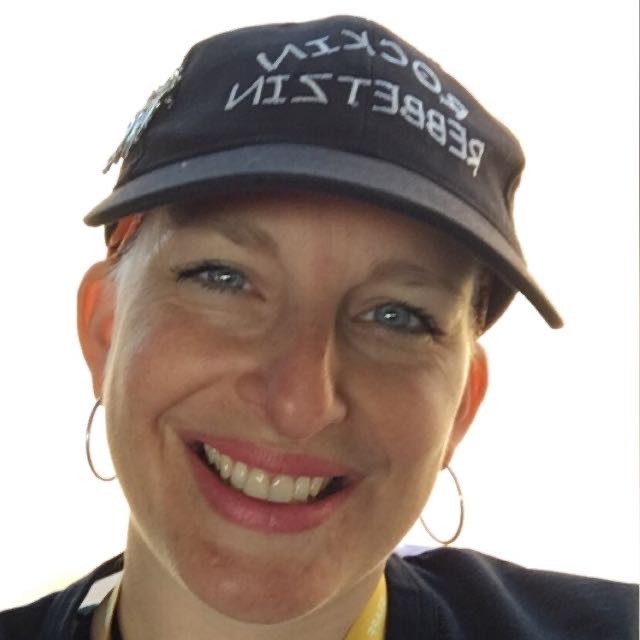
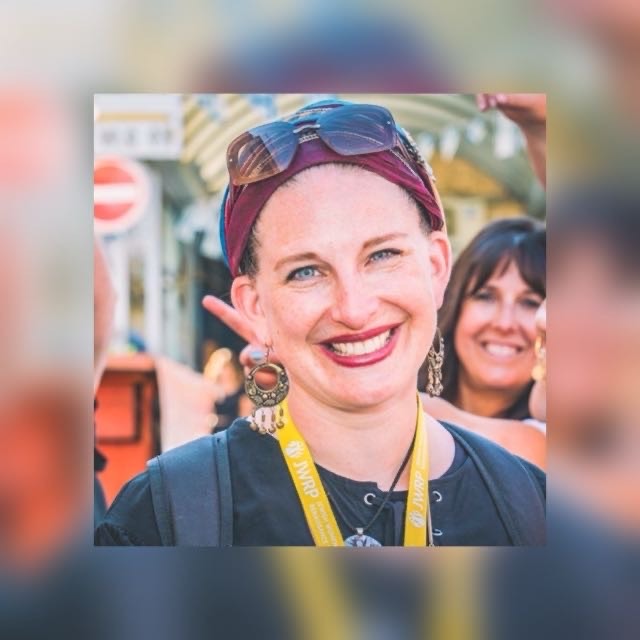
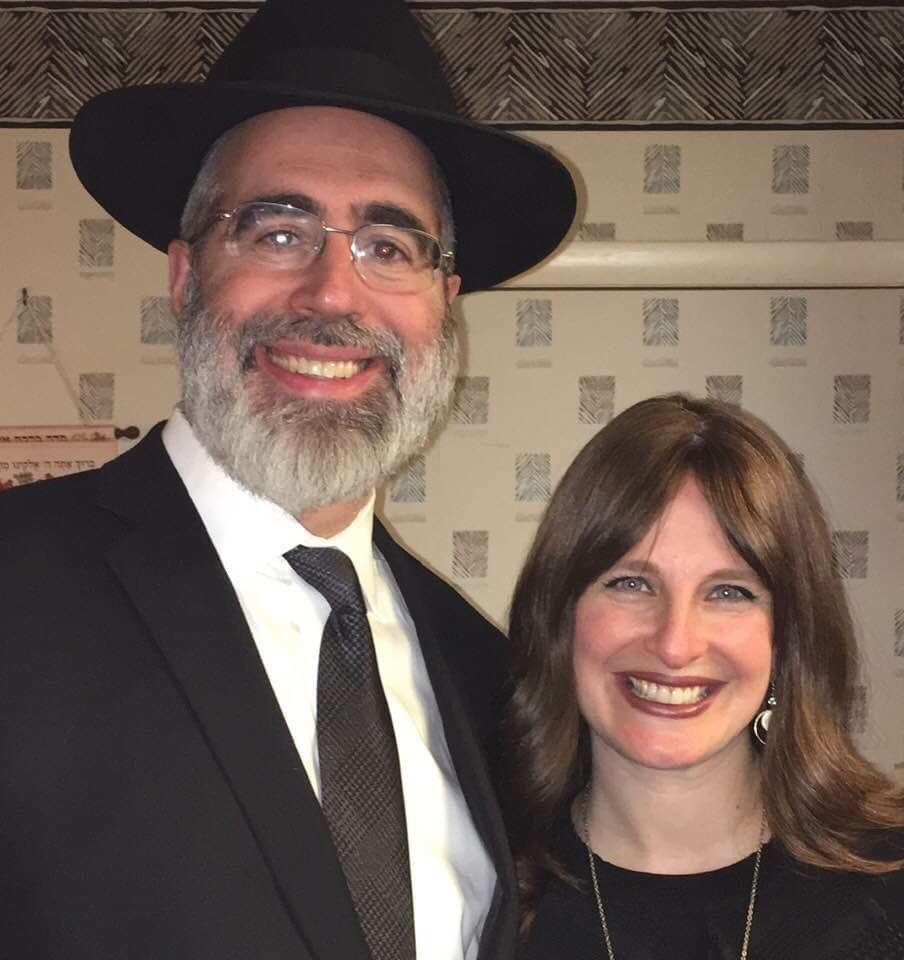
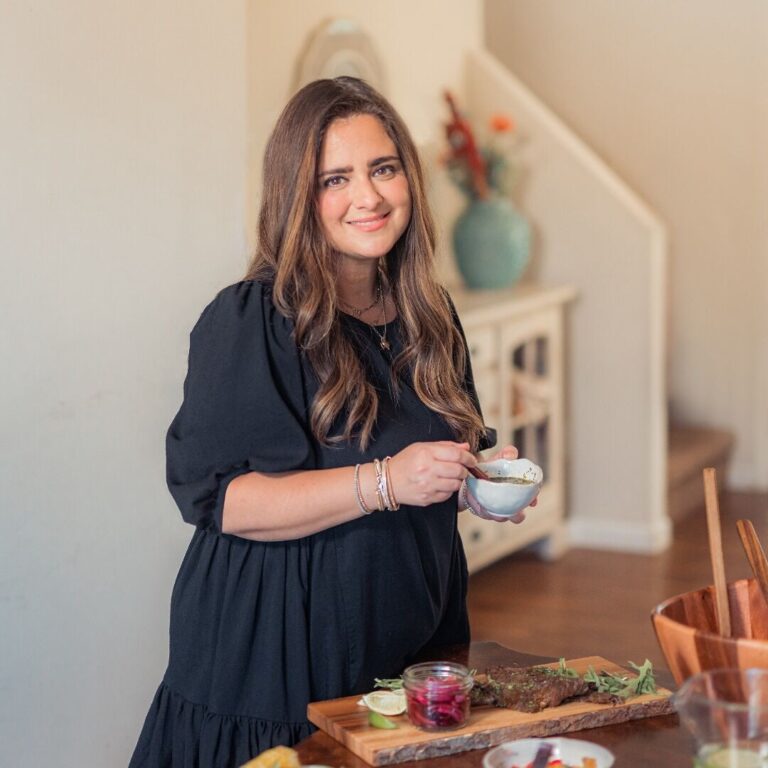




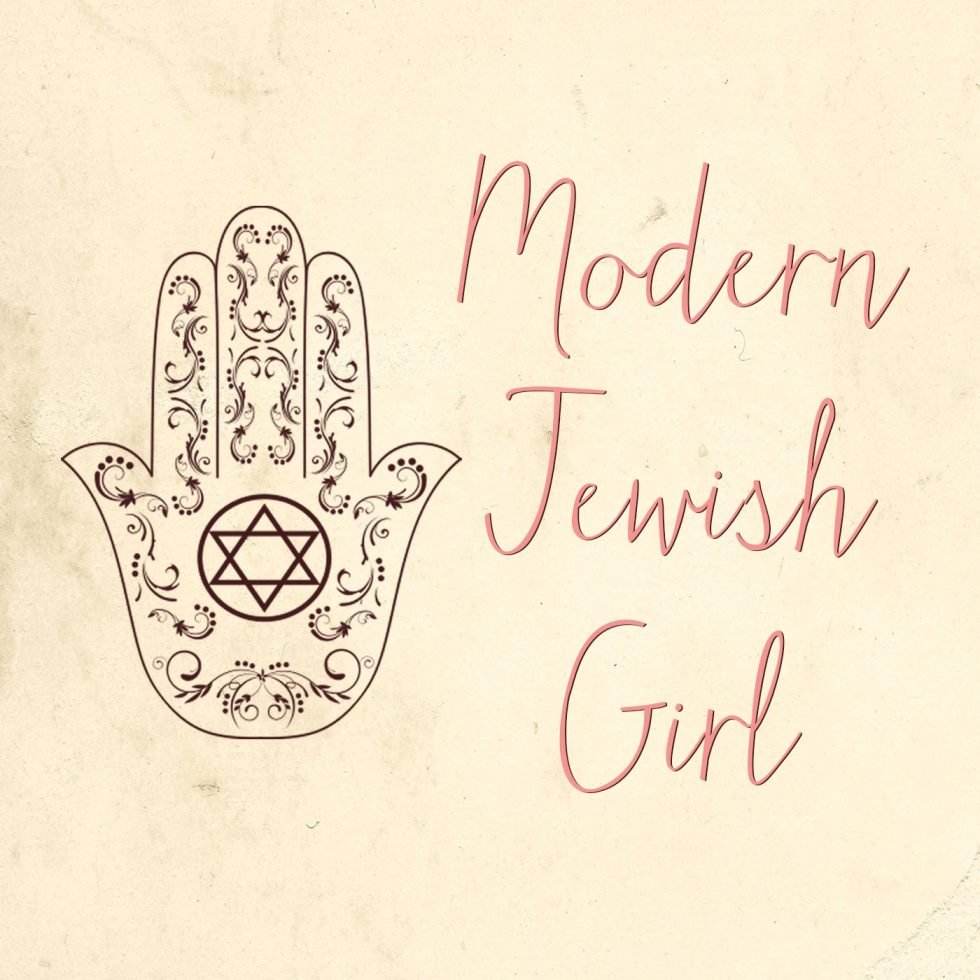
[…] Tov everyone! While a new month is always exciting — we have a special davening (prayers), we eat bread to signify a more festive meal, we are supposed to abstain from certain […]